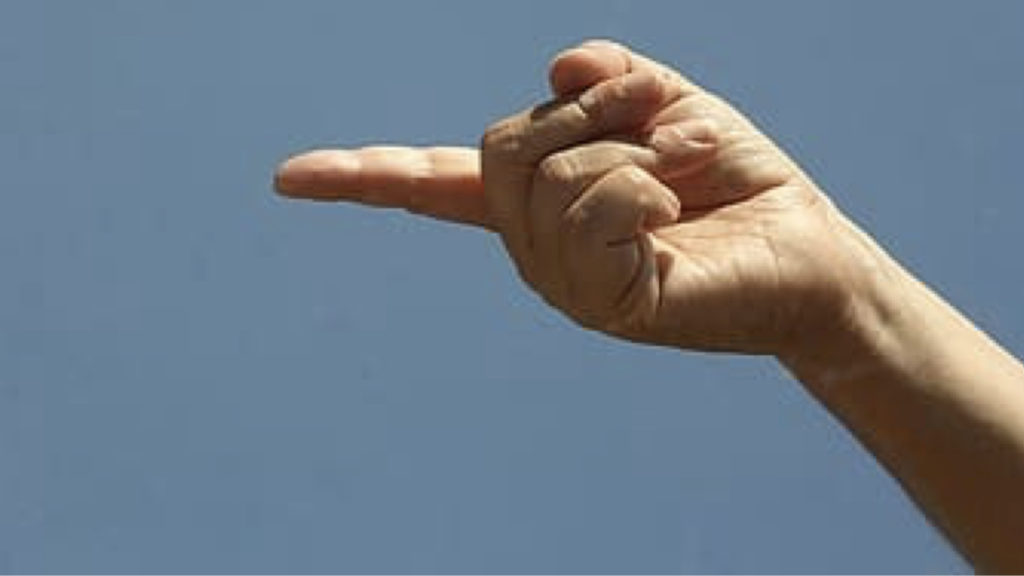I have been asked many times what is my secret to helping children overcome learning obstacles and grow into thrivers.
The success comes when the children understand they can’t blame anyone or anything for what they are dealing with. They learn how to look at a challenge and see how they can take responsibility for it. Seeing the challenge as something they have control over allows them to grow in ways that blaming will not.
Tom Maxwell is a well respected life coach and author of several books on success. His view on Blame is worth sharing.
“There are people who don’t seem to take responsibility for the things they do. They will turn to blame others instead. As my father would say, “When we point the finger at others, we are pointing three back at ourselves.”
The first sign of maturity in a person’s life is when they quit looking to other people to blame for their problems and they begin to look at themselves.
They recognize most of the problems they have in their life are not because of other people but because of them. Every time we blame someone else, we excuse ourselves. Every time we excuse ourselves, we lower ourselves. Until we dumb down our lives until we aren’t effective. Why? Because we didn’t take responsibility the first time.”
He cautions listeners to not play the blame game, because he doesn’t want us to stay the same. He wants us to change and take responsibility today.
So how does this apply to the classroom and our students? When we allow students to blame the reason they are not doing well is because of a teacher or a diagnosis we are stunting their growth. When a child says, “I won’t be able to read because I am dyslexic,” they are closing off the ability to find solutions. My friend’s brother taught himself how to read, even though he was severely dyslexic. He did not blame his inability to learn to read on conventional methods. Instead, he developed the Universal Reading Method.
Learning to be self-sufficient requires students to look at their mistakes and own them. When they blame their mother for not putting their backpack in the car, they are not growing and learning to become resilient.
One of my third graders used this excuse for the reason he didn’t have his homework. When asked why he didn’t put it in the car himself, he said, “It was too heavy.” Our children’s backpacks are not loaded down and a three year old could pick it up. Against our policy, the mother had brought it in. That is a big “No-NO” in my program, but it was helpful to demonstrate that he placed blame on the one person. I asked him to go get it, and he brought it in.
I told him, “Mark, I see you are carrying your backpack. I’m going to ask you a question and I want you to think about the answer you are going to give me before you give me one. We all make mistakes. If we have gotten away in the past by blaming others, then we will continue to do that. But, we don’t learn how to improve if we do. In your case, I suspect you forgot to put it into the car and was embarrassed and didn’t want to miss Hall of Fame (15 minutes of free play on Fridays for all those who remember their homework and turn it in by 8:30 each morning). We want you to accept your mistakes as an opportunity to learn how to avoid them in the future. So, when I ask you the next question, if you are honest with yourself and can come up with a plan for remembering to put it in the car next time, we will not count this as a missed assignment and you can use your Freebie. We don’t usually do this, but we want you to learn to accept your own mistakes. If you try blaming someone again, you will suffer the consequences. I am going to ask you again, Why did you not have your backpack today and how will you make sure you have it tomorrow?”
“I forgot to put it in the car. I will put it in the car as soon as I am done with my homework and I will put a sign on my bathroom mirror to make sure it is in there.”
“That sounds like a plan that might work. Doesn’t it feel better to have owned your own mistake?”
“Yes, it didn’t feel good to tell you my mom forgot it, because I knew that wasn’t the truth.”
“The truth will set you free. We will see if your idea works. If it doesn’t, we will not accept blaming someone else.”
“I’ll do it.”
Once children overcome their fear of making mistakes, they are less inclined to blame someone else.
Blaming in children is often a survival strategy they learn at a young age. Contrary to common belief, it is not an indicator of children being compulsive liars. If they are taught to own their own mistakes and learn from them, they will be less likely to continue the blame game.
Sadly, some never do and the blamers and shamers end up as our bosses.
